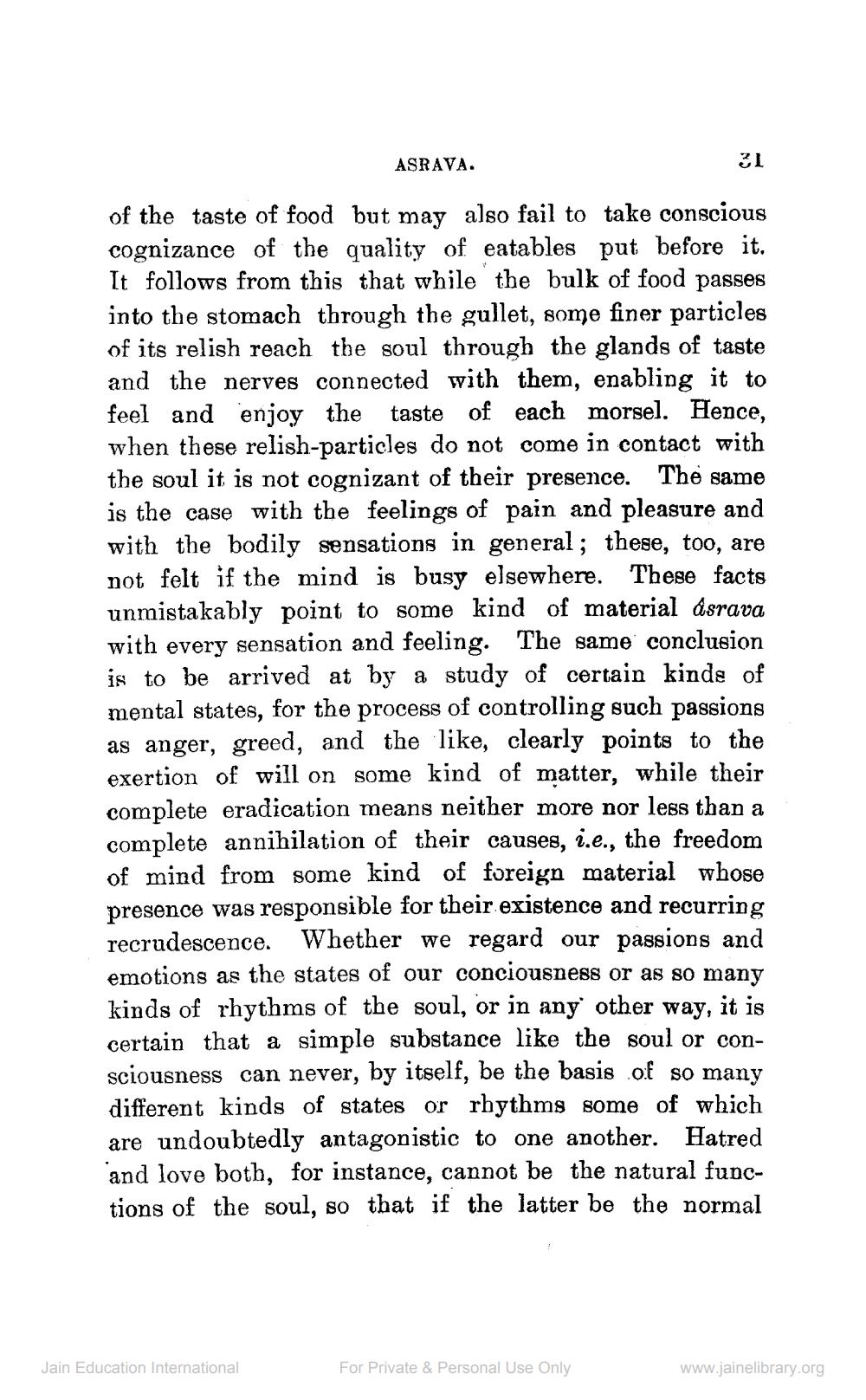________________
ASRAVA.
21
of the taste of food but may also fail to take conscious cognizance of the quality of eatables put before it. It follows from this that while the bulk of food passes into the stomach through the gullet, some finer particles of its relish reach the soul through the glands of taste and the nerves connected with them, enabling it to feel and enjoy the taste of each morsel. Hence, when these relish-particles do not come in contact with the soul it is not cognizant of their presence. The same is the case with the feelings of pain and pleasure and with the bodily sensations in general; these, too, are not felt if the mind is busy elsewhere. These facts unmistakably point to some kind of material dsrava with every sensation and feeling. The same conclusion is to be arrived at by a study of certain kinde of mental states, for the process of controlling such passions as anger, greed, and the like, clearly points to the exertion of will on some kind of matter, while their complete eradication means neither more nor less than a complete annihilation of their causes, i.e., the freedom of mind from some kind of foreign material whose presence was responsible for their existence and recurring recrudescence. Whether we regard our passions and emotions as the states of our conciousness or as so many kinds of rhythms of the soul, or in any other way, it is certain that a simple substance like the soul or consciousness can never, by itself, be the basis of so many different kinds of states or rhythms some of which are undoubtedly antagonistic to one another. Hatred and love both, for instance, cannot be the natural functions of the soul, so that if the latter be the normal
Jain Education International
For Private & Personal Use Only
www.jainelibrary.org




